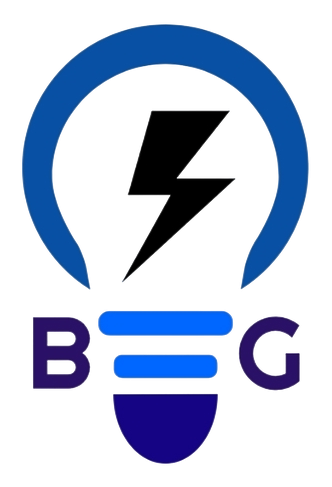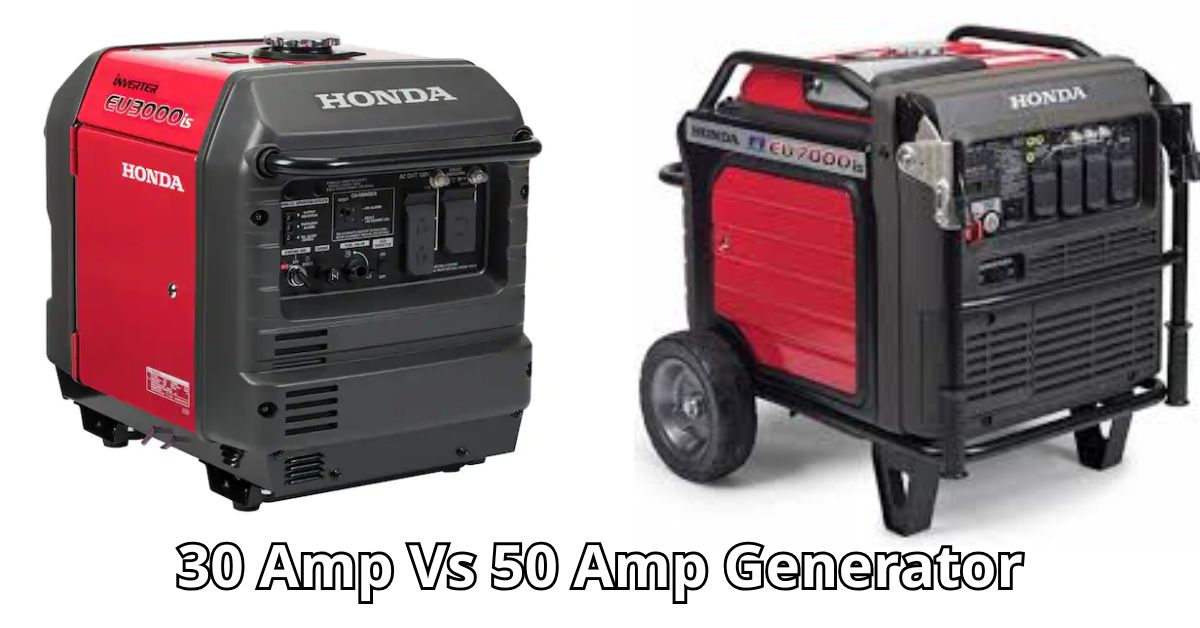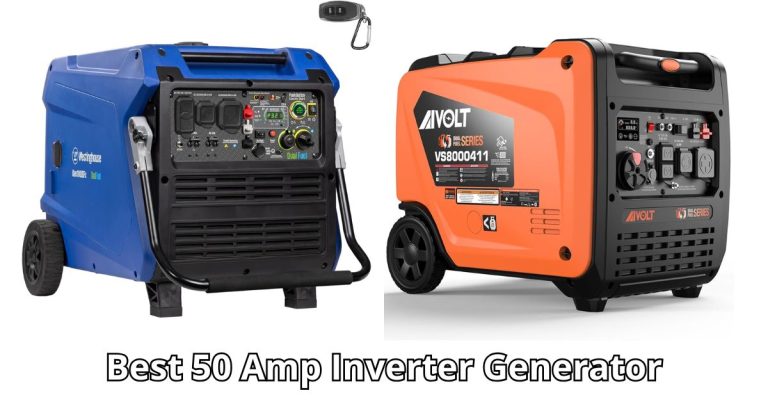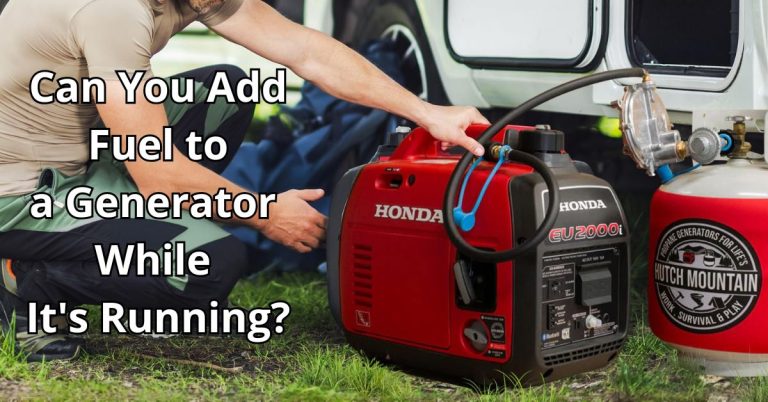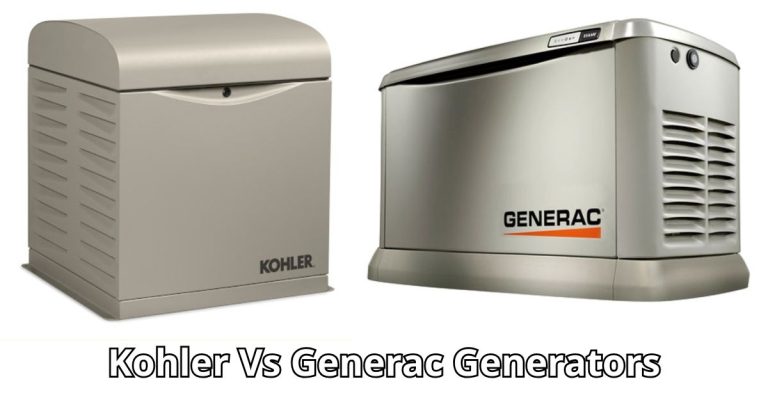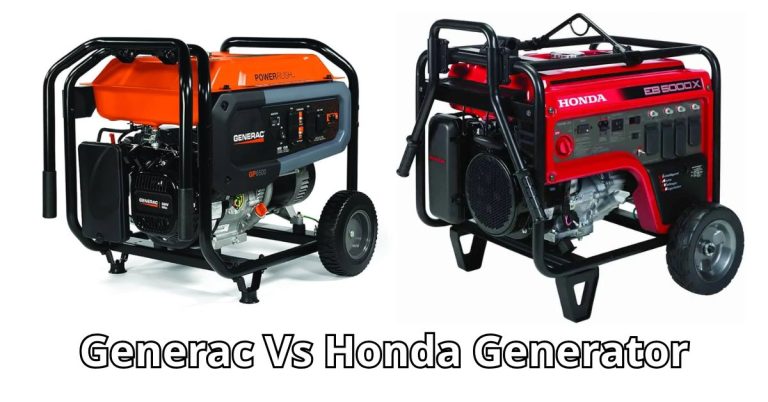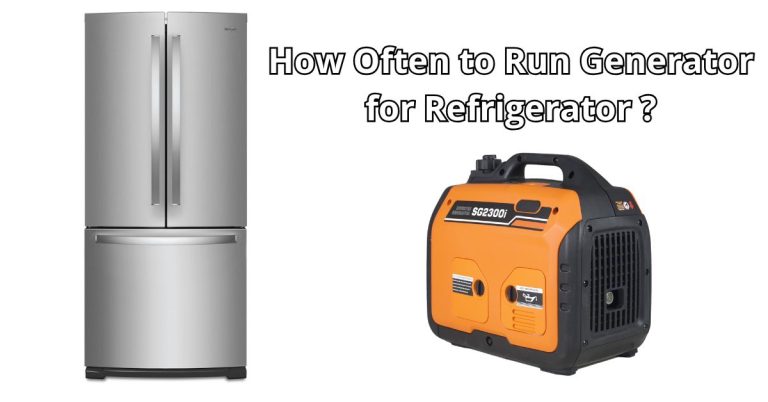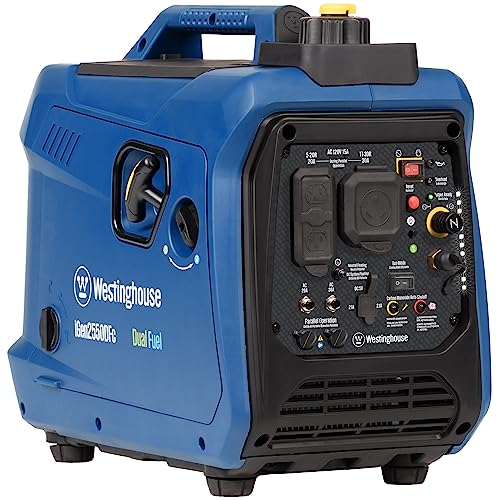30 Amp Vs 50 Amp Generator: Choosing the Right Power Source
Choosing between a 30 amp and a 50 amp generator can be confusing. Both have their advantages and are suited for different needs.
Generators are essential, especially during power outages or for outdoor activities. The right generator keeps your appliances running smoothly. But how do you decide which one is best for you? This blog will help you understand the key differences between 30 amp and 50 amp generators.
It will guide you through their unique features, power capacities, and best use cases. By the end of this article, you’ll know which generator fits your needs perfectly. Stay tuned as we compare these two options in detail.

Introduction To Power Sources
Generators are essential for providing power when no other source is available. They are used in homes, RVs, and outdoor activities. Choosing the right generator can be a challenge. This guide will help you understand the differences between 30 amp and 50 amp generators.
Importance Of Choosing Correct Amperage
Choosing the right amperage is crucial. It ensures that your devices run smoothly. The wrong amperage can damage your equipment. It can also lead to power outages. Understanding your power needs helps you make the right choice.
Overview Of 30 Amp And 50 Amp Generators
30 amp generators are common in smaller setups. They can handle lighter loads. This makes them ideal for smaller RVs and basic home use. They typically provide up to 3,600 watts of power.
50 amp generators are suited for larger setups. They can handle heavier loads. These generators are perfect for larger RVs and homes with many devices. They can supply up to 12,000 watts of power.
Knowing the difference between 30 amp and 50 amp generators helps you choose the best one for your needs. Each type has its benefits and limitations.
30 Amp Generator Basics
A 30 amp generator is a popular choice for many small to medium-sized applications. It provides a reliable source of power for various needs. This type of generator is perfect for homes, RVs, and small businesses. Understanding its uses and benefits can help you decide if it’s right for you.
Typical Uses
30 amp generators are often used for recreational vehicles. They provide enough power to run essential appliances like air conditioners and microwaves. These generators are also great for home backup power. They can keep your lights, refrigerator, and other key devices running during a power outage. Small businesses can use them to power computers, printers, and other necessary equipment.
Advantages
One advantage of a 30 amp generator is its portability. Many models are lightweight and easy to move. This makes them ideal for camping or tailgating. Another benefit is fuel efficiency. 30 amp generators often use less fuel compared to larger models. This can save you money in the long run. They are also quieter, making them more pleasant to use in residential areas or campgrounds.
50 Amp Generator Basics
Understanding the basics of a 50 Amp generator is essential before diving into its uses and advantages.
A 50 Amp generator provides a higher power output compared to a 30 Amp generator.
This makes it suitable for more demanding applications.
Typical Uses
A 50 Amp generator is commonly used in situations where higher power is needed.
Here are some typical uses:
- RV Use: Ideal for large recreational vehicles with multiple appliances.
- Home Backup: Powers most home appliances during outages.
- Construction Sites: Runs heavy-duty tools and equipment.
- Outdoor Events: Supports lighting, sound systems, and food stalls.
Advantages
Choosing a 50 Amp generator comes with several advantages:
- Higher Capacity: Can handle more demanding power needs.
- Versatility: Suitable for various applications, from RVs to construction sites.
- Reliability: Consistent power output for critical appliances.
- Future-Proof: Meets growing power needs over time.
In summary, a 50 Amp generator offers significant benefits for those who need a reliable, high-capacity power source.
It is versatile and meets the demands of various applications, ensuring uninterrupted power.
Credit: www.reddit.com
Comparing 30 Amp And 50 Amp Generators
Generators come in various types and sizes. The 30 Amp and 50 Amp generators are popular options. Choosing the right one depends on your power needs. Let’s compare the two.
Power Output Differences
A 30 Amp generator provides up to 3,600 watts of power. This is enough for small appliances and light loads. A 50 Amp generator can deliver up to 12,000 watts. This power output is suitable for larger appliances and heavier loads. Clearly, the 50 Amp generator has a higher capacity. It can handle more devices at once.
Suitability For Different Applications
The 30 Amp generator fits well for RVs and small homes. It can run essential appliances like the refrigerator and lights. The 50 Amp generator suits larger homes and construction sites. It can power multiple heavy-duty tools and appliances. Consider your power needs before making a choice. Smaller setups benefit from a 30 Amp generator. Larger setups need the 50 Amp generator’s extra power.
Factors To Consider
Choosing between a 30 amp and a 50 amp generator can be challenging. Several factors play a crucial role in this decision. Let’s dive into the most important ones to help you make an informed choice.
Power Requirements
One of the first things to consider is your power needs. A 30 amp generator provides around 3,600 watts. This is suitable for small to medium-sized RVs or homes with basic appliances. If you need more power, a 50 amp generator offers about 12,000 watts. This can handle larger homes and more demanding equipment. Assess your power requirements before making a decision.
Budget Considerations
Budget is another critical factor. A 30 amp generator is generally more affordable. It costs less to purchase and maintain. On the other hand, a 50 amp generator is more expensive. It offers more power but at a higher price. Consider what you can afford and balance it with your power needs.
Installation And Compatibility
Choosing between a 30 amp and a 50 amp generator is crucial. Each option has unique installation requirements and compatibility factors. Understanding these differences ensures a smooth setup and optimal performance.
Compatibility With Existing Systems
A 30 amp generator is often compatible with smaller systems. It works well with RVs and smaller homes. These generators typically support essential appliances and devices. A 50 amp generator, on the other hand, suits larger systems. It can power more devices and larger homes. Compatibility checks are vital before installation. Ensure your system can handle the generator’s output.
Installation Requirements
Installing a 30 amp generator usually involves fewer steps. The wiring process is simpler. This makes it easier for DIY enthusiasts. A 50 amp generator requires more complex wiring. It may need professional installation. Both types need proper grounding for safety. Always follow the manufacturer’s guidelines. Make sure to check local regulations. These rules may affect your installation process.
Safety Considerations
Safety should be your top priority when using a generator. Choosing between a 30 amp and a 50 amp generator involves understanding key safety considerations. This ensures you can use your generator without any risks.
Electrical Safety
Electrical safety is crucial with any generator. A 50 amp generator provides more power. This means it can potentially pose a higher risk if not handled correctly. Make sure to use the right cords and connectors. Check all connections for damage. Broken cords or connectors can cause electrical shocks or fires.
A 30 amp generator, while lower in power, still requires careful handling. Never overload your generator. Overloading can cause overheating and damage. Always follow the manufacturer’s guidelines for safe operation.
Proper Usage
Using your generator properly is key to safety. With a 50 amp generator, ensure your appliances do not exceed the generator’s capacity. This prevents overloading and potential hazards. Always read the user manual.
A 30 amp generator should also be used within its limits. Plugging in too many devices can cause a drop in performance. It can also lead to dangerous situations. Follow the recommended usage instructions for safe operation.
Remember to operate generators in well-ventilated areas. Carbon monoxide buildup can be deadly. Never use a generator indoors or in enclosed spaces. Always place it outside, away from windows and doors.
Making The Final Decision
Choosing between a 30 Amp and a 50 Amp generator can feel overwhelming. You need to assess your needs and consider expert recommendations. Each option has its pros and cons, and the right choice depends on your specific requirements. Let’s explore these factors in detail.
Assessing Your Needs
First, consider the appliances and devices you plan to power. Make a list of all the essential items. Include their wattage requirements. Calculate the total wattage needed. This will help you determine the power capacity required.
For smaller setups, like an RV or a small home, a 30 Amp generator might suffice. It typically provides up to 3,600 watts. This is suitable for basic appliances, lights, and small electronics.
For larger homes or more demanding needs, a 50 Amp generator is better. It offers up to 12,000 watts. This can power multiple heavy-duty appliances and ensure uninterrupted power supply.
Consider your future needs too. If you plan to add more appliances or increase your power usage, opt for a higher capacity generator.
Expert Recommendations
Experts often recommend choosing a generator based on your power usage patterns. If you frequently use high-wattage appliances, a 50 Amp generator is a safer bet. It provides more flexibility and reduces the risk of overloading.
On the other hand, if your power needs are modest and unlikely to increase, a 30 Amp generator is more cost-effective. It consumes less fuel and is easier to maintain.
Consult with a professional electrician. They can assess your power needs and recommend the right generator size. Their expertise ensures you make an informed decision.
Consider the ease of installation and portability. A 30 Amp generator is often lighter and more portable. A 50 Amp generator, while more powerful, can be bulkier and harder to move.
Here’s a quick comparison table to help you:
| Feature | 30 Amp Generator | 50 Amp Generator |
|---|---|---|
| Power Capacity | Up to 3,600 watts | Up to 12,000 watts |
| Ideal For | Small homes, RVs | Large homes, high-wattage appliances |
| Fuel Consumption | Lower | Higher |
| Portability | Lighter | Heavier |
By assessing your needs and considering expert advice, you can make a well-informed decision. Choose the generator that best fits your lifestyle and power requirements.
Frequently Asked Questions
What’s The Difference Between 30 Amp And 50 Amp Generators?
A 30 amp generator delivers 3,600 watts, while a 50 amp generator provides up to 12,000 watts. The 50 amp generator supports more appliances and higher power needs.
Can I Use A 50 Amp Generator For My Rv?
Yes, you can use a 50 amp generator for your RV. It provides more power and supports multiple appliances simultaneously.
Which Is More Efficient: 30 Amp Or 50 Amp Generator?
A 50 amp generator is generally more efficient. It supports higher power needs and runs more appliances without overloading.
Is A 50 Amp Generator Necessary For A Home?
A 50 amp generator is ideal for homes with higher power needs. It supports more appliances and ensures stable power during outages.
Conclusion
Choosing between a 30 amp and 50 amp generator depends on your needs. Consider your power requirements and budget. A 30 amp generator suits smaller setups. A 50 amp generator works better for larger, power-hungry equipment. Always evaluate your specific situation.
Safety and efficiency matter. Think about future power needs, too. Make an informed decision to ensure reliable power. Both options have their benefits. The right generator will provide peace of mind. Happy powering!
